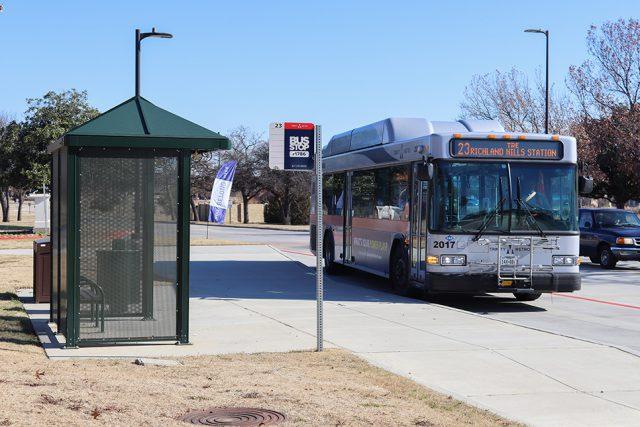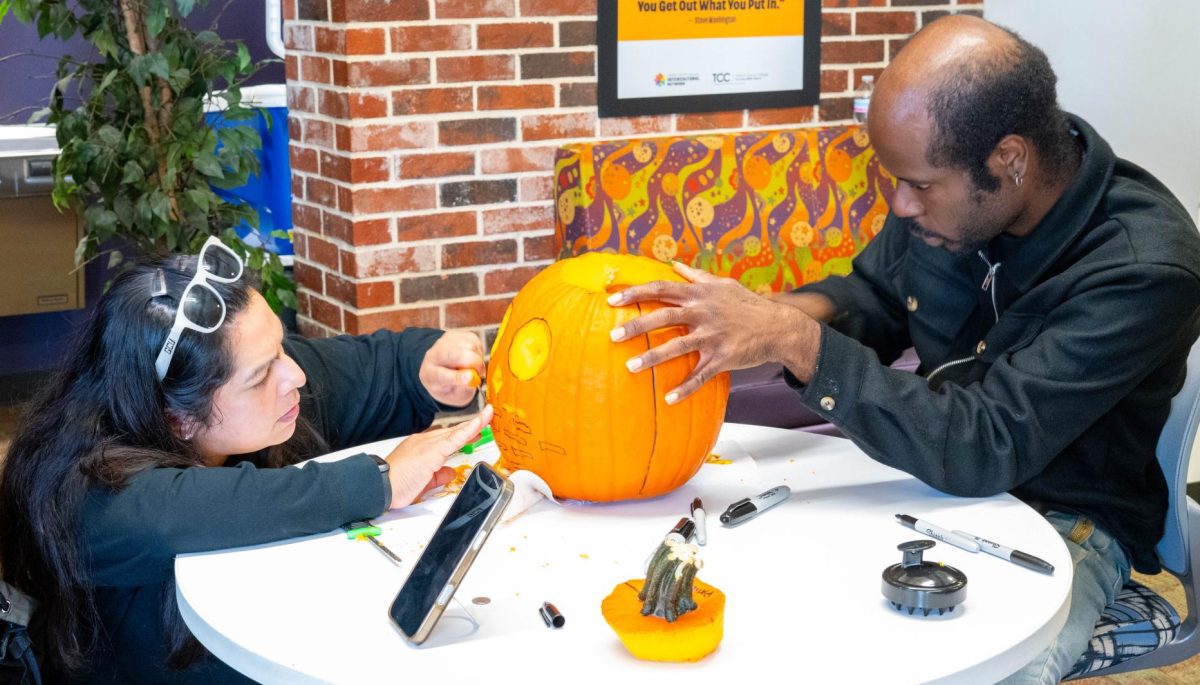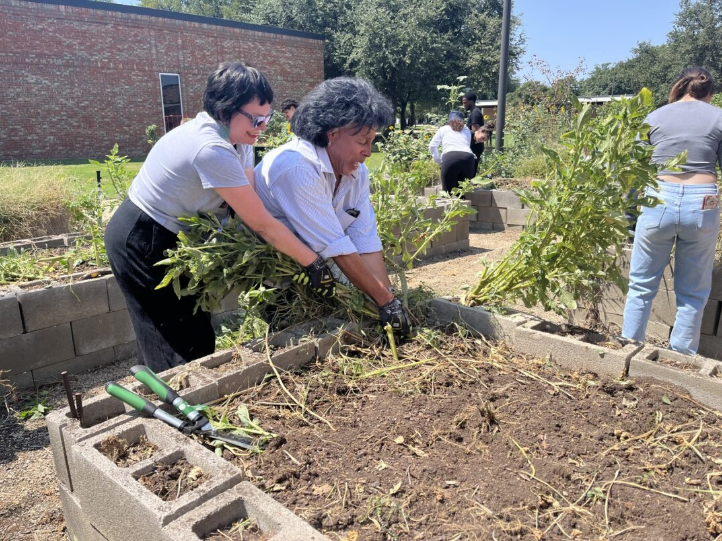
Logan Evans
campus editor
logan.evans@my.tccd.edu
South Intercultural Network coordinator Michael Russ sat in a virtual meeting room with civil rights activist Marc Lamont Hill on the afternoon of April 20, 2021. The men were set to speak as part of TOROTalks, a South Campus initiative aimed at healing the community through conversation and the arts. The topics of the day were policing and protest in the wake of COVID-19, an issue that had boiled over the previous year with the killing of George Floyd.
Then — just before the start of the interview — a slew of comments stormed the live viewer chat: Derek Chauvin had just been found guilty of murder.
“We couldn’t have scripted that if we tried,” said Russ, who is a TOROTalks coordinator. “As a Black man, it was a moment for me to take in and process
what happened.”
Cathartic moments like this are the driving force behind TOROTalks. While Russ said he could never have predicted the serendipity of that April 20 session, he works with co-coordinator Jeffrey Herr to build programming that feels relevant to the issues of a given semester. Billed as “Healing Through Conversation and The Arts,” TOROTalks is a forum where students can engage with the issues facing
their community.
Most recently, TOROTalks put on the October 2021 event “Don’t Cop Out: Bridging the Gap Between Police-Community Interaction.” Local members of law enforcement — primarily officers of color — met with students for an open discussion. During the event, the students in attendance learned that many of the present officers grew up around the Forest Hills area near South Campus and shared a similar upbringing with themselves. Herr said this led to an informed dialogue and each party left the event with a better
mutual understanding.
“I think that was a really crystallizing moment of healing,” he said.
The foundation of TOROTalks rests on that idea of reaching understanding. The inspiration for the initiative came from a 2019 interaction between a group of South students and an on-campus officer. During an otherwise mundane encounter, the students noticed the officer resting his hand on the grip of his firearm. A student expressed their discomfort to the officer, who explained that he rested his hand that way out of comfort — that it had never occurred to him that the gesture might be intimidating to others.
This led to the creation of a 2019 Unity Summit, during which local community leaders met with students for an open dialogue on campus safety. The summit was well-received and Stephanie Hill — former South vice president of student development — put together a committee to extend its ideas to future events.
TOROTalks officially debuted February 2020 with an on-campus gathering. That first meeting was productive, Herr said, but it came just weeks before COVID-19 hit. TCC went virtual, and there were no immediate plans to carry TOROTalks over — then came the killing of George Floyd that summer. The issue of civil rights and police brutality were again thrust into the national spotlight. Instead of waiting until fall to build programming, the TOROTalks coordinators launched a two-part series that summer titled “The Urgency of Now,” and continued meeting virtually through the online semesters.
“We were very intentional when we went viral,” Herr said. “We wanted to make sure that we had events that were going to be central to the mindset of what was going on.”
To keep a finger on the pulse of their community, the TOROTalks coordinators survey students on what issues they feel are the most pressing. Herr and Russ look for guest speakers who can relate to the South Campus population, while also using their own identities and perspectives to guide them. Both Herr and Russ come from different backgrounds, but share the
same goal.
“I’m a person who realizes my privilege, but would really love to give away more of it,” Herr said. “This is maybe just a little fraction of me doing TOROTalks that attempts
to do that.”
Russ said that while the work he does is important to him, he’s never sought it out — it’s just a part of him.
“Every day, I’m a Black man,” Russ said. “While I’m for all people, I’m for my people. I want to see my people have these opportunities from an education standpoint, from an upward social mobility standpoint. So I’m just naturally drawn to the work.”
Herr and Russ are both aware that the subject matter of TOROTalks events might cause controversy among students or faculty, but to them, a little controversy can be a good thing. Bringing in a speaker who can address relevant issues is the priority, but someone who might also stir things up and bring attention to the program — like Marc Lamont Hill last April — doesn’t hurt. In fact, Russ believes it brings a more realistic view of what their line of work entails.
“We can’t try to portray a picture of this being a sweet, clean, pretty story,” Russ said. “It’s work that’s messy. It’s work that’s bloody. It’s work people have died for. We can’t run away from these conversations.”
Russ cites the words of the late John Lewis: “Get in good trouble.” He said he hopes students take the new perspectives gleaned from TOROTalks events and use them to organize toward real-world change.
The TOROTalks committee is currently building a large-scale event, set for April. With this event and beyond, the TOROTalks coordinators plan to continue using conversation as a road to healing, understanding, and digging deeper into the heart of the South Campus population.
“We like to think that we’re getting into good trouble,” Russ said.
































